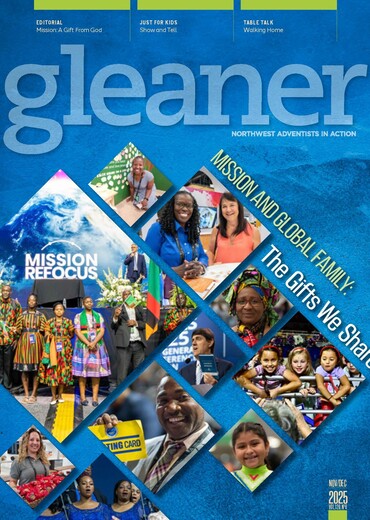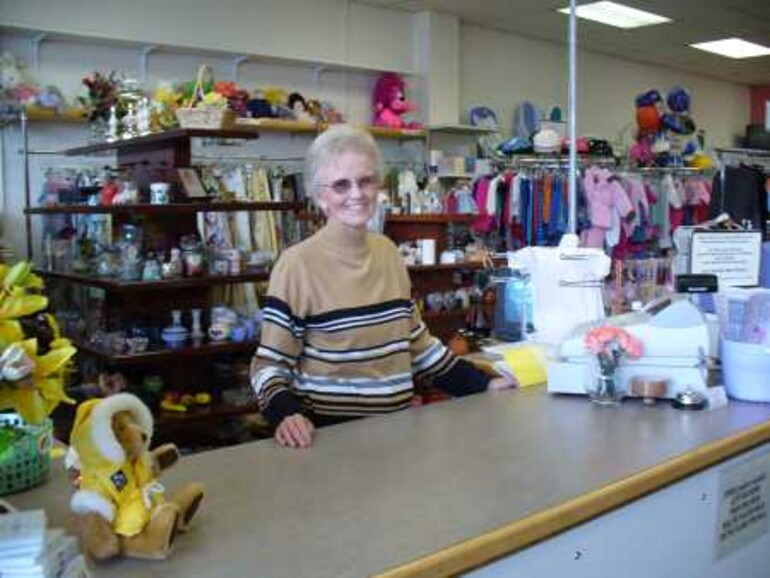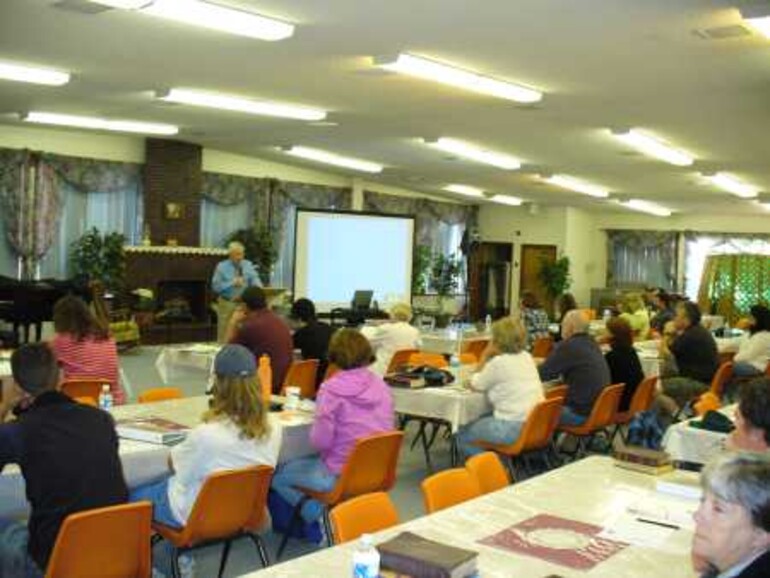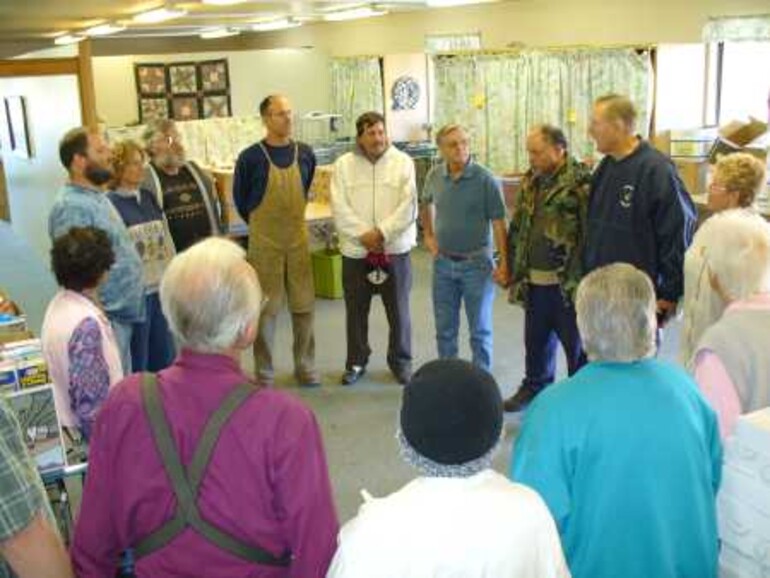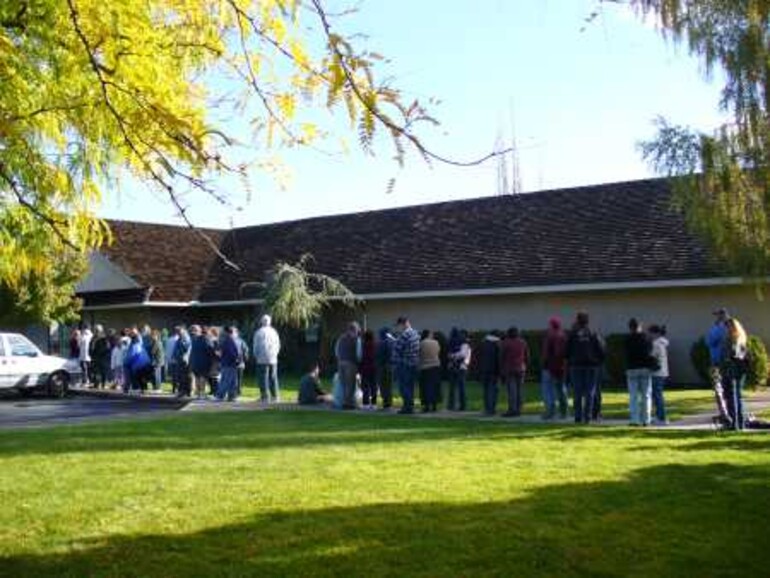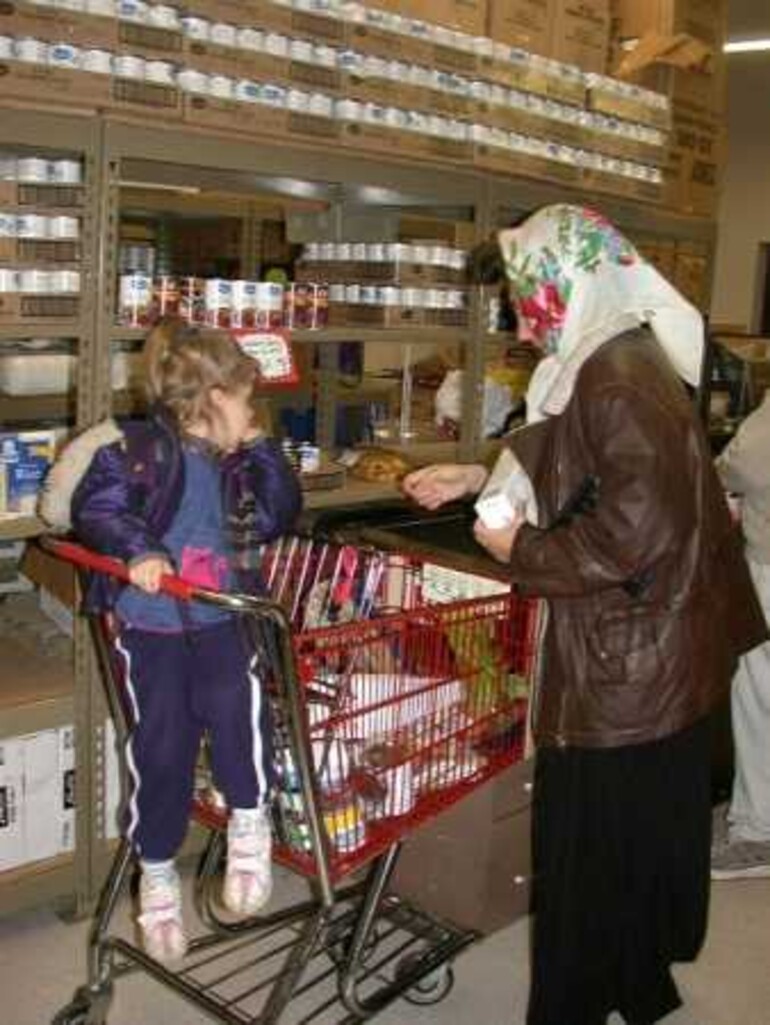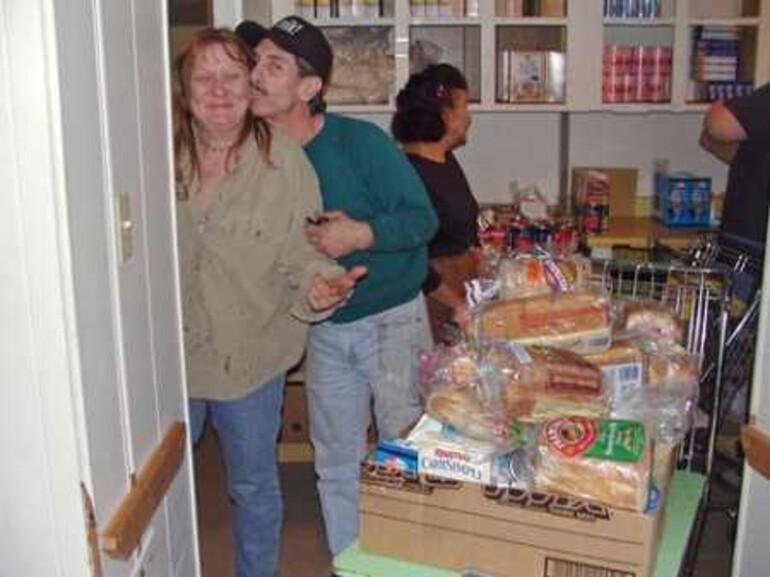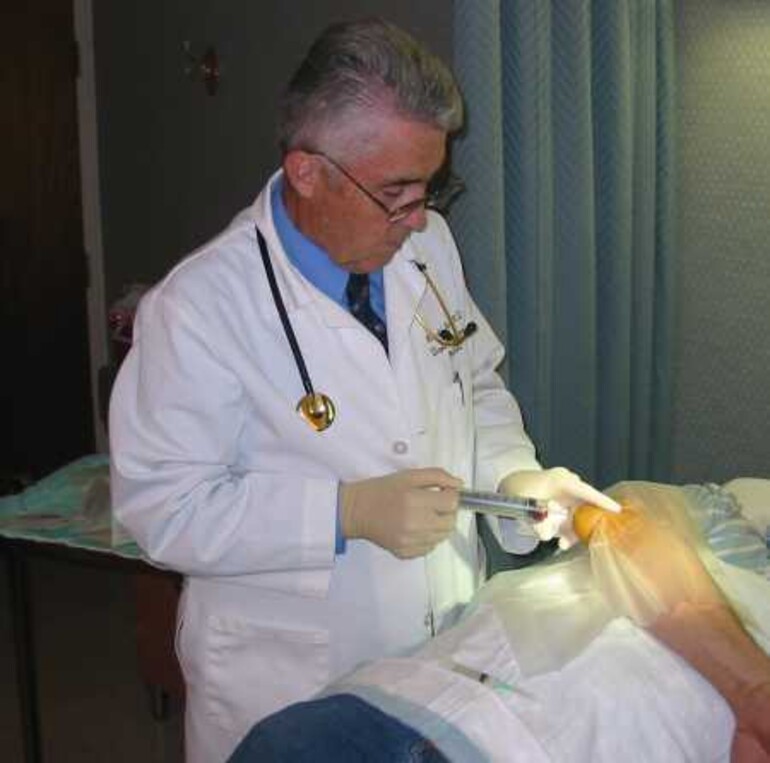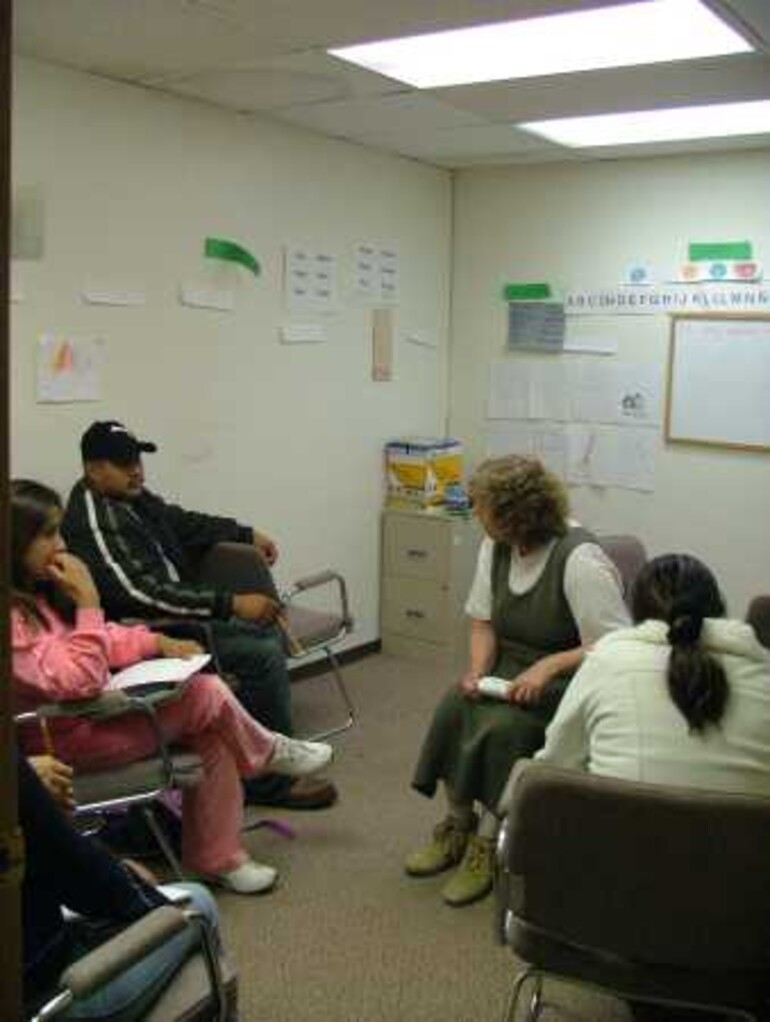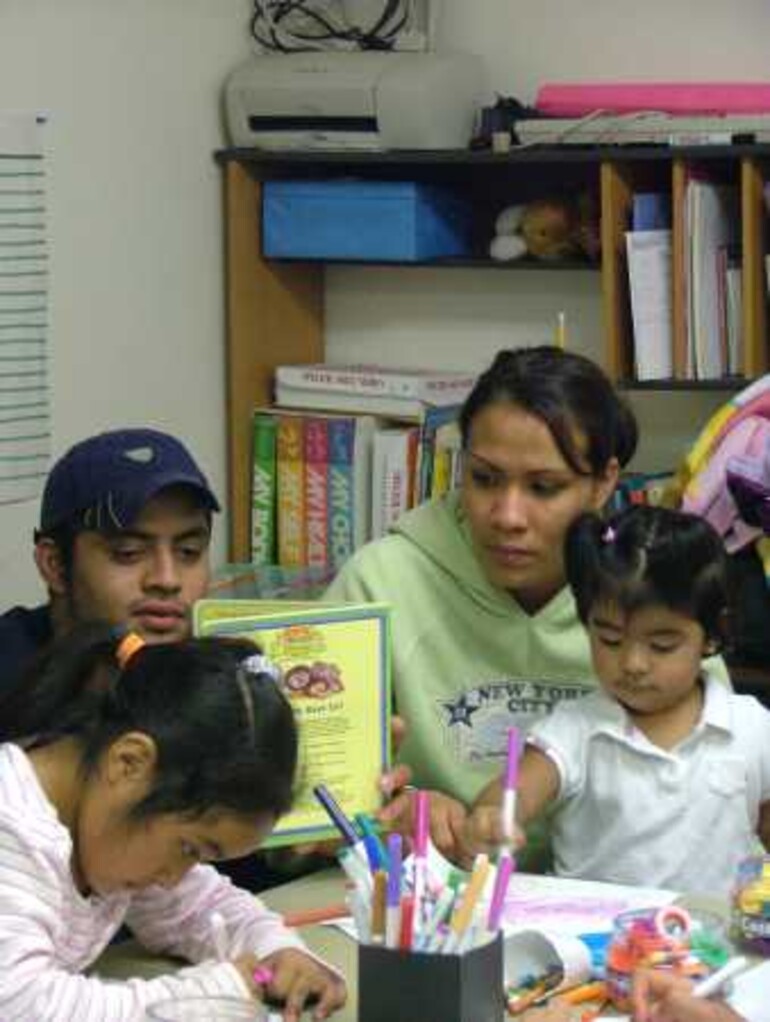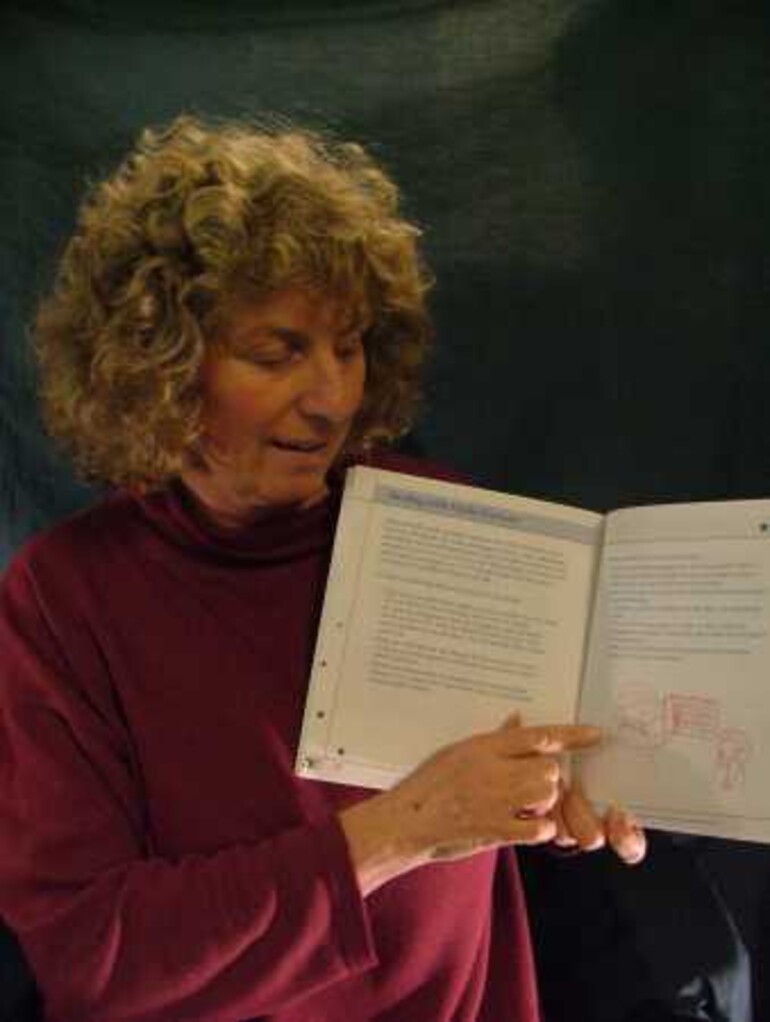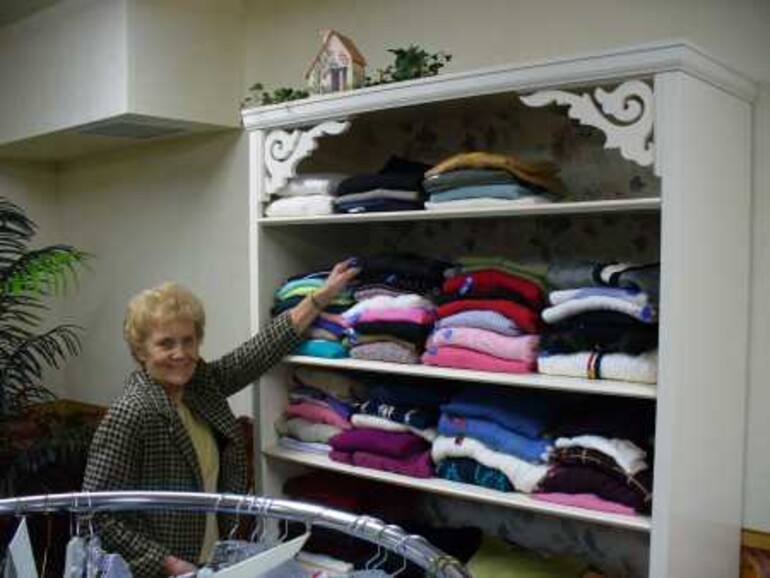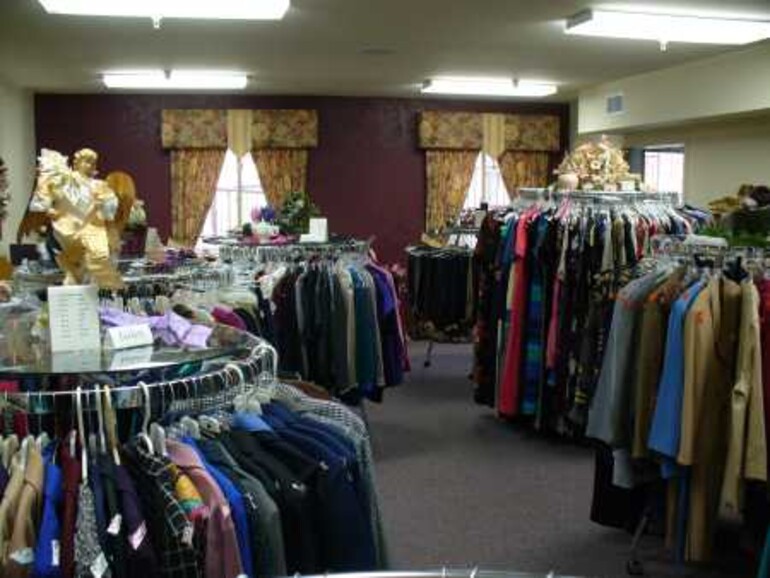Adventist Community Services Fresh Strategies for Engaging in The Great Commission, Right Here at Home When long-time Adventists hear about Adventist Community Services (ACS), they think “Dorcas” and picture quilting bees or mounds of used clothes that need sorting and mending before being given to needy families or sent overseas. Young believers and academy students envision canned food drives, yard cleaning or house painting for the elderly. New members fancy disaster response and the management of donated goods during disaster recovery. Each of these pictures is correct, but increasingly incomplete. ACS refers to any humanitarian service activity Adventists are doing for or with the community. Only the imagination, vision and resources of the local church, school and community limit ideas for community services. In addition to the traditional clothing bank and food pantry, ACS activities include: health screening and education classes, life skills seminars, tutor/mentor programs, English as a Second Language (ESL) classes, transitional housing, medical clinics, children/youth events, thrift store ministries, adult day care, soup kitchens, job training, van ministry and much more. An amazing history ACS evolved from historical efforts by the Seventh-day Adventist Church to develop community initiatives. In 1879, the church officially recognized the Dorcas Society as its organized community outreach program. In 1956, this organized program became the Seventh-day Adventist Welfare Service (SAWS) with the purpose of strengthening Adventist relief efforts. As the church grew in developing countries, the need for international relief activities increased, and the church’s community service endeavors grew to include international fields. As a result, SAWS expanded into a domestic and international program. In 1972, Adventist Community Services was officially titled the domestic humanitarian church agency and, in 1973, the international program was named the Seventh-day Adventist World Service, now known as the Adventist Development and Relief Agency (ADRA) International. While ADRA carries these responsibilities outside of the United States, ACS continues to be the agency responsible for the church’s humanitarian efforts within the United States and Bermuda. “To serve the poor and hurting in Christ’s name” is the official aim of Adventist Community Services. Adventists throughout the Pacific Northwest are fulfilling that purpose in a variety of ways. Inner City and Urban Social Action At a recent meeting of ACS leaders from all over the country, a conference ACS director commented that “My conference is very rural—we do not need urban programs.” “Let me share with you the definition of urban,” grinned the speaker. “It’s wherever you have a Wal-Mart!” Everyone at the meeting got the point. Big cities are not the only communities where there are unemployed, the working-poor, uninsured and disadvantaged populations. ACS Inner City and urban programs offer relief services, engage in public advocacy, promote community development and equip community members with the skills needed to become self-sufficient. They address problems such as hunger, drugs, violence, crime and unemployment. As early as 1883, church-organized inner city and urban missions were initiated, which have grown over the years to include the vast array of inner city services we currently provide. Training programs today include understanding the role of the church in social justice, management strategies for nonprofit organizations, community development and fundraising strategies. Our Bozeman, Montana, churches partner with other area churches to meet the needs of the homeless through a program called “Family Promise.” Through that partnership, they are not only more effective in their ministry efforts, they have developed rich relationships with other Christians. The Arlington, Washington, ACS Center signed up to stock a rest area coffee kiosk. During 48-hour shifts, volunteers serve a wide variety of beverages, homemade cookies and Orowheat bakery items. Through the donations they receive, this outreach project has funded many others but most importantly, the volunteers have had numerous opportunities to pray with travelers and share Christ with them. Health Ministries Since early in our history, Seventh-day Adventists have been involved in teaching people to live healthy lives. With public health threats increasing from the use of tobacco, alcohol and drugs, community health screening and education programs have become a primary focus for ACS since the 1970s. At the North American Division, ACS has a strong working partnership with our health ministries programs and this is becoming more and more apparent on the local level. Through ACS in Christmas Valley, Oregon, church members have conducted Stop Smoking and Eight Weeks to Wellness programs. In Salem, Oregon, ACS has offered cooking schools, the Wellspring Diabetes program, a comprehensive cardiac wellness program and seminars in stress management. In College Place, Washington, Sonbridge (housed in what was formerly a nursing home facility called “Sunbridge”) offers a free medical clinic in the same building as other ministries including 12-step programs, a thrift store, Christian radio and Christian TV. Tutoring and Mentoring Programs Adventist Community Services strengthened its services in tutoring and mentoring in response to the Alliance for Youth goal of educational assistance for disadvantaged children, which was rolled out at the Presidents' Summit for America’s Future in 1997. At that summit, Presidents Bush, Carter, Clinton, Ford and Nancy Reagan (representing Ronald Reagan) challenged the nation to make children and youth a national priority. The ACS vision to provide tutoring and mentoring to children quickly grew to include adults. In Tacoma, Washington, The Caring Place offers immigration assistance as well as a transitional housing facility. Similarly, in Everson, Washington, A Watered Garden offers classes in English as a Second Language (ESL), computer literacy, and preparation for the citizenship test and the GED. In Forks, Washington, church member Diane Cowles goes right into people’s homes to help both children and adults learn to read and write. To the amazement of one woman’s children, though it took her months to do it, she finally learned to write her own name! Disaster Response For more than 100 years the Seventh-day Adventist Church has provided emergency relief in times of disaster. In addition to filling our scriptural mandates to effectively care for those in crisis, our disaster response gives Adventists a tremendous opportunity to develop relationships with civic and government leaders. In 1969, ACS became a charter member of the National Voluntary Organizations Active in Disaster (NVOAD), now consisting of more than 40 organizations. Since 1974, ACS has operated in partnership with the U.S. Federal Emergency Management Agency (FEMA). One result of that relationship is that a number of Adventists have been tapped by FEMA to fill some of their own leadership roles. While the Pacific Northwest has been relatively free from large-scale natural disasters, we know that in these last days we can expect disasters to increase and that no part of our country will be immune. Meanwhile, our trained members are able to respond to smaller local disasters (read about the ACS response to the fire in Hooper Bay, Alaska, in the November Gleaner) as well as answer the call to help in other parts of the country. For example, Dennis Olson, North Pacific Union Conference (NPUC) disaster response coordinator, and several other leaders from the NPUC, were able to give significant leadership in response to Hurricanes Katrina and Rita. Adventist YES Corps In 1993, Adventist Youth Emergency Services (YES) Corps emerged from the Medical Cadet Corps (MCC). The Medical Cadet Corps was formed by an act of Congress in 1861 for youth between 18 and 22 years of age to serve a one-year term in the Army as wound dressers and ambulance attendants. With the MCC no longer functioning, Adventist YES Corps was developed to mobilize youth in community action programs. Several NPUC churches are considering the potential of this particular program for implementation with their youth groups and/or schools. An amazing future Building on the success of the past, our work must continue to grow and change in order to meet the growing and changing needs of our society. How can we do this? Expand the scope of community services. As the needs of people become increasingly complex, we must adapt and expand our strategies. At the local level, we must continually reassess the needs of our communities to be sure that our programs are actually meeting those needs, not just reflecting the things we as a church are used to doing or enjoy doing. Build collaborative partnerships. Within the internal church network, ACS is nurturing more collaborative partnerships with other ministry departments on the local church, conference, union and division levels. ACS is also increasing involvement and participation in activities sponsored by other public, private and nonprofit organizations to provide humanitarian services. ACS will continue to develop mutually beneficial relationships with these organizations and will aspire to heighten the national awareness of Adventist work in communities. The synergy that partnerships provide at both the national and local levels helps us be more effective and grows our vision of what new things can be done. Provide continuing leadership education. One goal of ACS is to better equip and develop our leaders at every level. To effectively respond to the ever-changing, growing needs in society, they require fresh inspiration, an ever-expanding vision and up-to-the-minute training. These will be increasingly available at union, conference and local church educational events. Engaging in The Great Commission ACS provides the structure whereby members can more effectively serve Christ as He appears in “the least of these,” be Christ to a needy, hurting world and share Christ with all who will listen. For more information, visit www.communityservices.org or, to find out how you can make a difference in your community, contact your pastor or your local conference ACS director.
Adventist Community Services
Fresh Strategies for Engaging in The Great Commission, Right Here at Home
When long-time Adventists hear about Adventist Community Services (ACS), they think “Dorcas” and picture quilting bees or mounds of used clothes that need sorting and mending before being given to needy families or sent overseas. Young believers and academy students envision canned food drives, yard cleaning or house painting for the elderly. New members fancy disaster response and the management of donated goods during disaster recovery. Each of these pictures is correct, but increasingly incomplete.
ACS refers to any humanitarian service activity Adventists are doing for or with the community. Only the imagination, vision and resources of the local church, school and community limit ideas for community services. In addition to the traditional clothing bank and food pantry, ACS activities include: health screening and education classes, life skills seminars, tutor/mentor programs, English as a Second Language (ESL) classes, transitional housing, medical clinics, children/youth events, thrift store ministries, adult day care, soup kitchens, job training, van ministry and much more.
An amazing history
ACS evolved from historical efforts by the Seventh-day Adventist Church to develop community initiatives. In 1879, the church officially recognized the Dorcas Society as its organized community outreach program. In 1956, this organized program became the Seventh-day Adventist Welfare Service (SAWS) with the purpose of strengthening Adventist relief efforts.
As the church grew in developing countries, the need for international relief activities increased, and the church’s community service endeavors grew to include international fields. As a result, SAWS expanded into a domestic and international program. In 1972, Adventist Community Services was officially titled the domestic humanitarian church agency and, in 1973, the international program was named the Seventh-day Adventist World Service, now known as the Adventist Development and Relief Agency (ADRA) International. While ADRA carries these responsibilities outside of the United States, ACS continues to be the agency responsible for the church’s humanitarian efforts within the United States and Bermuda.
“To serve the poor and hurting in Christ’s name” is the official aim of Adventist Community Services. Adventists throughout the Pacific Northwest are fulfilling that purpose in a variety of ways.
Inner City and Urban Social Action
At a recent meeting of ACS leaders from all over the country, a conference ACS director commented that “My conference is very rural—we do not need urban programs.”
“Let me share with you the definition of urban,” grinned the speaker. “It’s wherever you have a Wal-Mart!”
Everyone at the meeting got the point. Big cities are not the only communities where there are unemployed, the working-poor, uninsured and disadvantaged populations. ACS Inner City and urban programs offer relief services, engage in public advocacy, promote community development and equip community members with the skills needed to become self-sufficient. They address problems such as hunger, drugs, violence, crime and unemployment.
As early as 1883, church-organized inner city and urban missions were initiated, which have grown over the years to include the vast array of inner city services we currently provide. Training programs today include understanding the role of the church in social justice, management strategies for nonprofit organizations, community development and fundraising strategies.
Our Bozeman, Montana, churches partner with other area churches to meet the needs of the homeless through a program called “Family Promise.” Through that partnership, they are not only more effective in their ministry efforts, they have developed rich relationships with other Christians.
The Arlington, Washington, ACS Center signed up to stock a rest area coffee kiosk. During 48-hour shifts, volunteers serve a wide variety of beverages, homemade cookies and Orowheat bakery items. Through the donations they receive, this outreach project has funded many others but most importantly, the volunteers have had numerous opportunities to pray with travelers and share Christ with them.
Health Ministries
Since early in our history, Seventh-day Adventists have been involved in teaching people to live healthy lives. With public health threats increasing from the use of tobacco, alcohol and drugs, community health screening and education programs have become a primary focus for ACS since the 1970s.
At the North American Division, ACS has a strong working partnership with our health ministries programs and this is becoming more and more apparent on the local level. Through ACS in Christmas Valley, Oregon, church members have conducted Stop Smoking and Eight Weeks to Wellness programs. In Salem, Oregon, ACS has offered cooking schools, the Wellspring Diabetes program, a comprehensive cardiac wellness program and seminars in stress management. In College Place, Washington, Sonbridge (housed in what was formerly a nursing home facility called “Sunbridge”) offers a free medical clinic in the same building as other ministries including 12-step programs, a thrift store, Christian radio and Christian TV.
Tutoring and Mentoring Programs
Adventist Community Services strengthened its services in tutoring and mentoring in response to the Alliance for Youth goal of educational assistance for disadvantaged children, which was rolled out at the Presidents' Summit for America’s Future in 1997. At that summit, Presidents Bush, Carter, Clinton, Ford and Nancy Reagan (representing Ronald Reagan) challenged the nation to make children and youth a national priority.
The ACS vision to provide tutoring and mentoring to children quickly grew to include adults. In Tacoma, Washington, The Caring Place offers immigration assistance as well as a transitional housing facility. Similarly, in Everson, Washington, A Watered Garden offers classes in English as a Second Language (ESL), computer literacy, and preparation for the citizenship test and the GED.
In Forks, Washington, church member Diane Cowles goes right into people’s homes to help both children and adults learn to read and write. To the amazement of one woman’s children, though it took her months to do it, she finally learned to write her own name!
Disaster Response
For more than 100 years the Seventh-day Adventist Church has provided emergency relief in times of disaster. In addition to filling our scriptural mandates to effectively care for those in crisis, our disaster response gives Adventists a tremendous opportunity to develop relationships with civic and government leaders. In 1969, ACS became a charter member of the National Voluntary Organizations Active in Disaster (NVOAD), now consisting of more than 40 organizations. Since 1974, ACS has operated in partnership with the U.S. Federal Emergency Management Agency (FEMA). One result of that relationship is that a number of Adventists have been tapped by FEMA to fill some of their own leadership roles.
While the Pacific Northwest has been relatively free from large-scale natural disasters, we know that in these last days we can expect disasters to increase and that no part of our country will be immune. Meanwhile, our trained members are able to respond to smaller local disasters (read about the ACS response to the fire in Hooper Bay, Alaska, in the November Gleaner) as well as answer the call to help in other parts of the country. For example, Dennis Olson, North Pacific Union Conference (NPUC) disaster response coordinator, and several other leaders from the NPUC, were able to give significant leadership in response to Hurricanes Katrina and Rita.
Adventist YES Corps
In 1993, Adventist Youth Emergency Services (YES) Corps emerged from the Medical Cadet Corps (MCC). The Medical Cadet Corps was formed by an act of Congress in 1861 for youth between 18 and 22 years of age to serve a one-year term in the Army as wound dressers and ambulance attendants. With the MCC no longer functioning, Adventist YES Corps was developed to mobilize youth in community action programs.
Several NPUC churches are considering the potential of this particular program for implementation with their youth groups and/or schools.
An amazing future
Building on the success of the past, our work must continue to grow and change in order to meet the growing and changing needs of our society. How can we do this?
Expand the scope of community services.
As the needs of people become increasingly complex, we must adapt and expand our strategies. At the local level, we must continually reassess the needs of our communities to be sure that our programs are actually meeting those needs, not just reflecting the things we as a church are used to doing or enjoy doing.
Build collaborative partnerships.
Within the internal church network, ACS is nurturing more collaborative partnerships with other ministry departments on the local church, conference, union and division levels. ACS is also increasing involvement and participation in activities sponsored by other public, private and nonprofit organizations to provide humanitarian services. ACS will continue to develop mutually beneficial relationships with these organizations and will aspire to heighten the national awareness of Adventist work in communities.
The synergy that partnerships provide at both the national and local levels helps us be more effective and grows our vision of what new things can be done.
Provide continuing leadership education.
One goal of ACS is to better equip and develop our leaders at every level. To effectively respond to the ever-changing, growing needs in society, they require fresh inspiration, an ever-expanding vision and up-to-the-minute training. These will be increasingly available at union, conference and local church educational events.
Engaging in The Great Commission
ACS provides the structure whereby members can more effectively serve Christ as He appears in “the least of these,” be Christ to a needy, hurting world and share Christ with all who will listen.
For more information, visit www.communityservices.org or, to find out how you can make a difference in your community, contact your pastor or your local conference ACS director.



